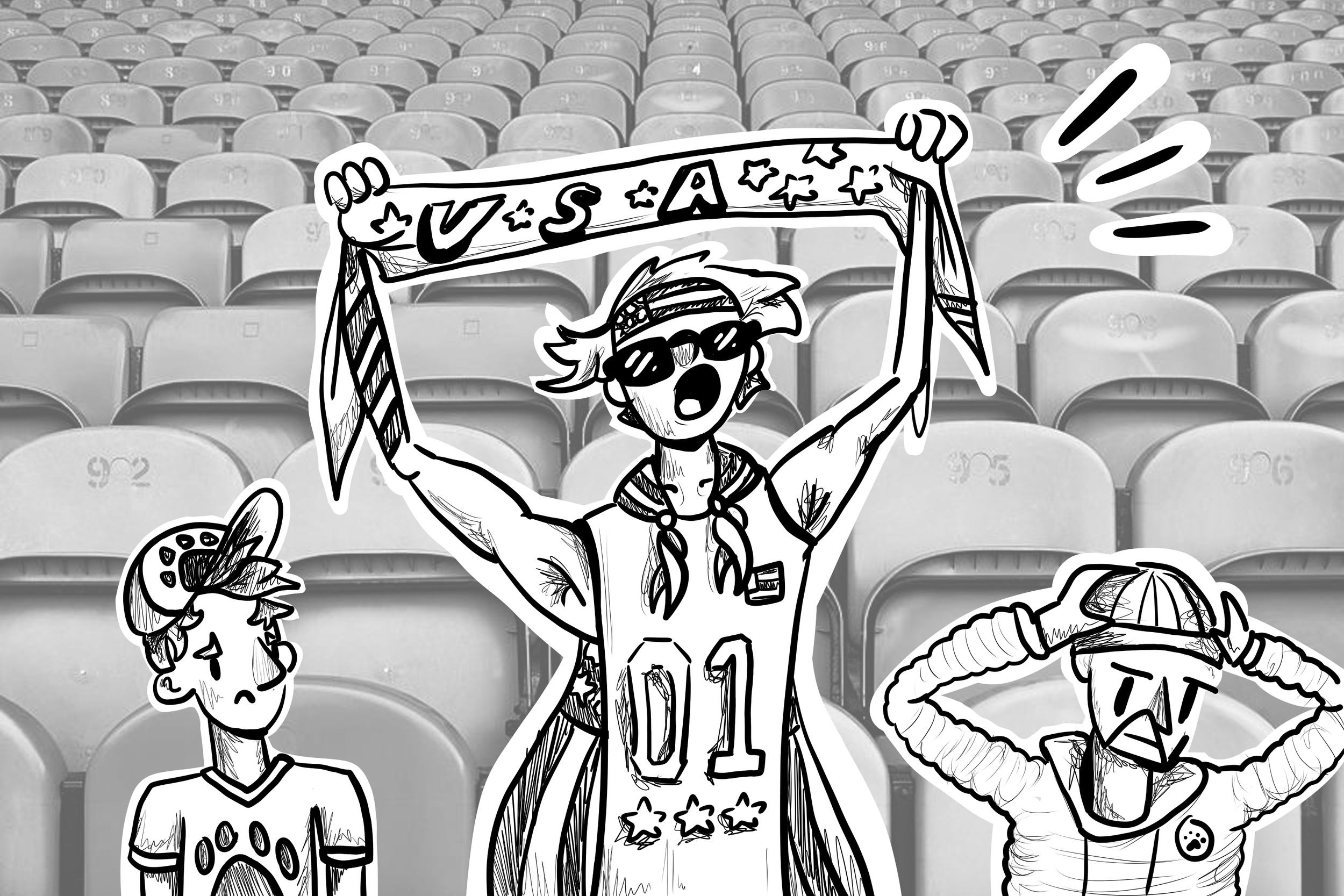Sporting event or indoctrination? Nationalism rears its ugly head
“Oh say can you see, by the dawn’s early light…” and the rest of the beloved national anthem of the U.S is recited with hats off and seats not being sat in at a majority of even somewhat significant sporting events across the United States every day. But why is our truly American nationalism so entangled with our sports? Don’t these things seem to have no correlation? It is notable that nationalism can stem from countries that would compete against each other. If you’re rooting for either team, you’re rooting for your country. But this argument doesn’t hold true during our NFL games where we’re ALL technically Americans, although perhaps there’s something to be said about state pride or even just team pride. All of these possibilities do not negate the fact that sports are extremely patriotic and even nationalistic for no apparent reason.
Nationalism, in its most basic form, is “identification with one's own nation and support for its interests, especially to the exclusion or detriment of the interests of other nations.” Nationalism first became an ideology, or at least a prevalent one, during the French and American revolutions, which stemmed from Enlightenment ideals of popular sovereignty, freedom in general, and simply the spirit of revolution. But have the consequences of nationalism been good or bad? It depends on what can be classified as nationalism. Was Donald Trump’s reign of poor leadership and his refusal to deal with anything in America that was not economically beneficial to him rooted in nationalism, idiocy, or both? Believing that there is no room for improvement in a capitalist country is beyond harmful for the country overall.
Now whether nationalism itself is “good” or “bad” in a basic sense can be endlessly debated as there is no definite answer, but rather a spectrum. It is important to know exactly what it is to understand how and why it continues to pop up throughout American sports. One of the most vital things that humans need to survive is to feel included in something, and that usually heavily involves indulging in American culture. Singing a song and shouting about how amazing OUR country is will prevent us from devolving into fits of rage and assaulting one another at sporting events, right?
However, there is an extremely fine line between full-blown nationalism and mere patriotism. Nowhere in the national anthem nor the overhead planes that fly full of red, white, and blue over countless sports arenas say anything about the ideology of nationalistic pride so prevalent in the U.S. It is simply acknowledging that the occupants of the arena live in the United States and maybe they should take some pride in their country, and that is not as harmful as the type of nationalism that has infected the U.S’s political environment in general; it is a very different and, again, fine line.
Actually, this is an almost uniquely American concept. In many regions across the world, the national anthem being played at a sports game is unforeseen. This fact can speak to what makes the U.S such a unique country. And, it’s arguable that the United States was built on nationalism. Just going back to the American Revolution which was fought through on a drive for nationalistic pride to pull off a successful revolution. It's entirely possible that the American flame ignited during the revolution or even before considering the unjustifiable theft of land that took place when America was “born.” It has continued to burn into several funnels of nationalism; the national anthem at sports games, for one, saying the pledge of allegiance at school every day, wearing the flag on shirts, chairs, and other products of capitalism, and blind support from Americans for a not-so-perfect country, etc.
Americans have no real reason to be this nationalistic. America has a long history of racism, sexism, homophobia, poverty, corrupt politicians, and more that would cause one to think it would permit a sort of shame to live here rather than an extreme, unconditional pride that so many Americans share. This makes American nationalism beyond ironic, and the standards we hold it to by integrating it into sporting events (sports already being extremely valued by Americans) does not justify the horrors hiding beneath the red, white, and blue surface.
Nonetheless, the United States became a global superpower with industrialism and revolution, where money was the most important thing and everyone had an entitlement to freedom and equality. Many Americans point to this as a “we’re the greatest country in the world” stereotype. This would be impossible to be true because we are first in virtually nothing but our military and our insufferable devotion to American football. Americans take an excessive amount of pride in their country because to them, it seems like the only country in the world. We hold the belief that we are the most egalitarian and opportunistic country. Regardless, these titles are taken by other nations; being ranked, freedom belongs to Switzerland and most opportunity belongs to Singapore, etc. While all of these things scream “freedom” it just doesn’t make sense people would take that much pride in a country like that but, for whatever reason, people simply don’t care, because there are other more important things that we did.
By Anika Flores
Oshkosh West Index Volume 118 Issue VII
April 25th 2022
